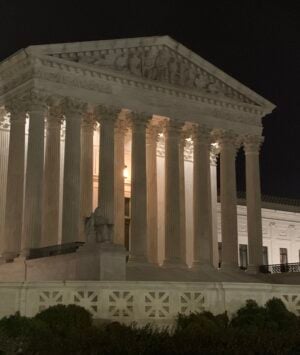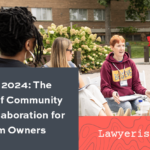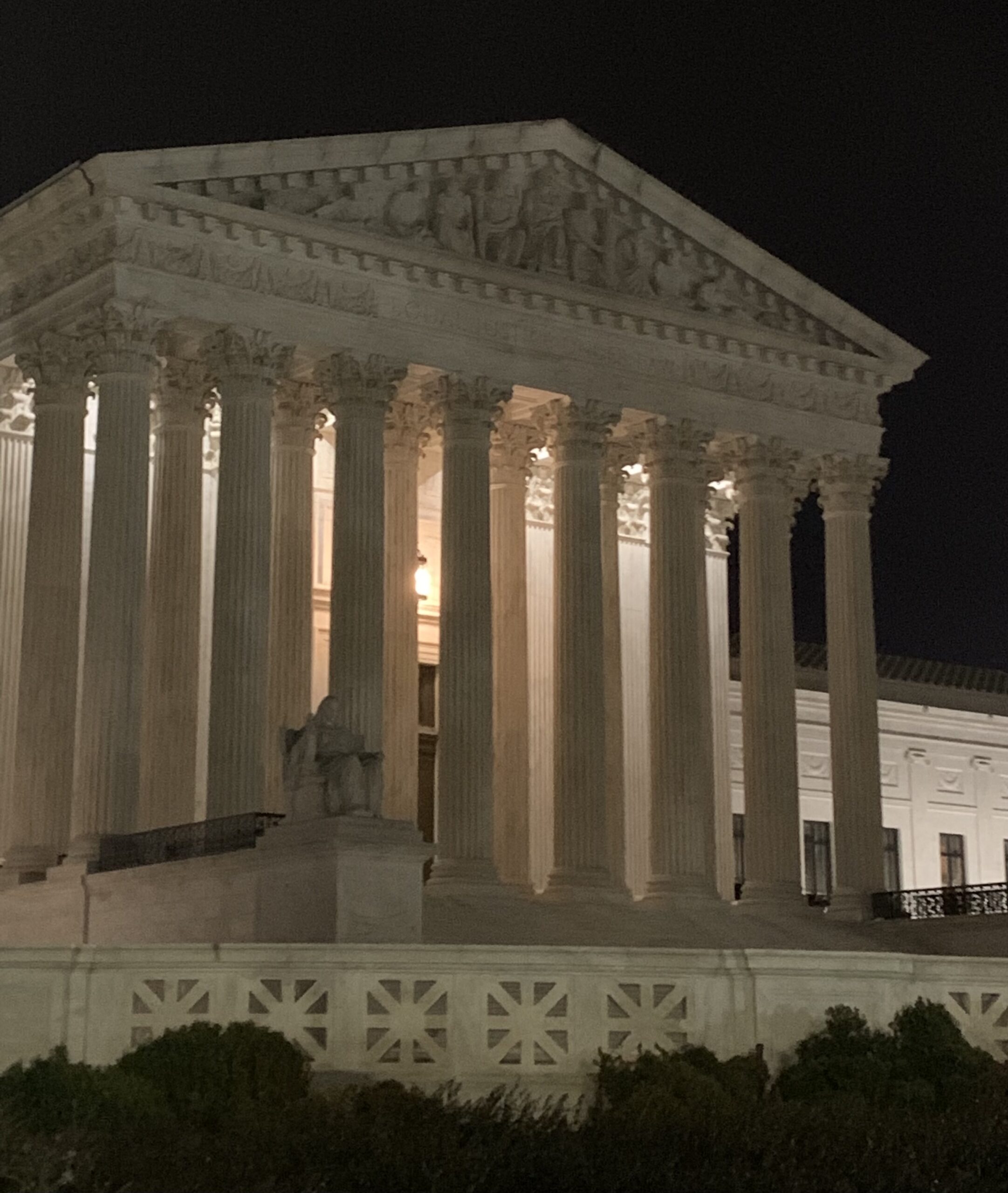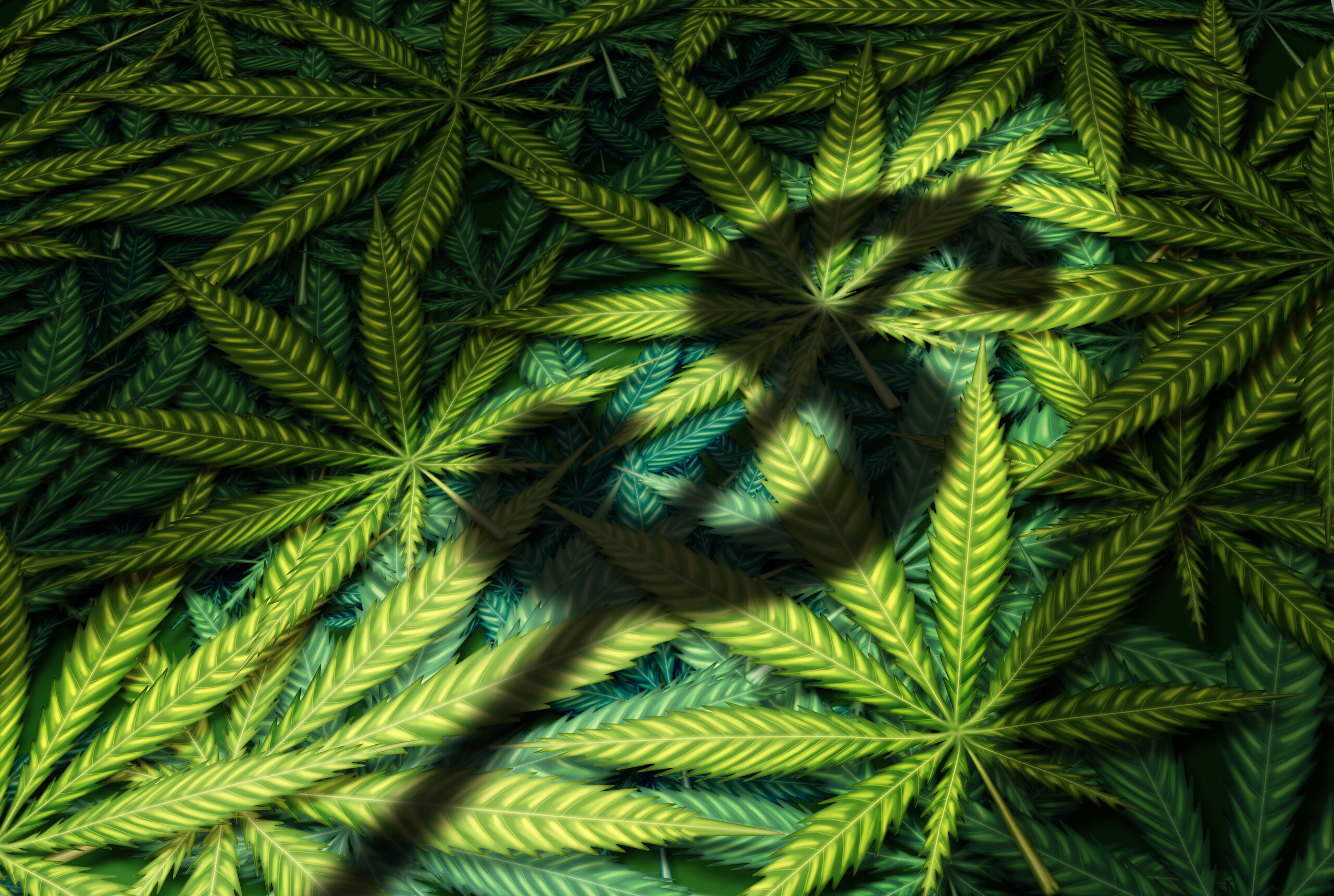
(Photo by Staci Zaretsky)
Josh Douglas’s previous book left me optimistic. But that isn’t my usual vibe, so I was skeptical about reading his latest book, “The Court v. The Voters: The Troubling Story of How the Supreme Court Has Undermined Voting Rights” (affiliate link). I see Prof. Douglas’s optimism might have changed some as well. In it, Douglas makes a bold statement that I didn’t expect to be coming from him: “The Supreme Court of the United States is anti-democracy and anti-voter — and has been for far longer than you might think.”
Agree with the first portion, disagree with the latter. I’m a pessimist.
The TL;DR: I highly recommend this book, from which I learned that it is possible to be incredibly angry about a subject but also thankful for the messenger’s ability to clearly communicate in an interesting, well-researched fashion the reason why I should be angry. I wanted to throw this book so many times out of anger, but I didn’t because I couldn’t put it down.
As Douglas’s book takes off, it seems that the thing that transformed his optimism was January 6, 2021. He makes clear that the other institutions of our government no longer serve anything but their own quests for power — at least that is the takeaway I got. And, for the remainder of the book, Douglas walks us through the Supreme Court’s role in shaping our elections and institutions in ways that threaten democracy, and at the very least consistently and damned near religiously attack voters, the people who are supposed to keep our other institutions in check.
Douglas starts off with a ruse. What seemingly is an optimistic expansion of voting turns out to be a trap. Anderson v. Celebrezze, 460 U.S. 780 (1983), a case that invalidated Ohio’s early filing deadline for independent candidates. As Douglas points out for those who were not still alive or choose not to remember the 1980s, Anderson had no choice but to run as an independent. At that point, all of the GOP was Reagan Country. The case would ultimately have been forgotten, but for Justice Stevens moving away from strict scrutiny — a move that causes the case to be well cited for support in future decisions. Stevens’s new test, as Douglas points out, causes the court to balance the burden on the voter and the state’s “asserted need for its voting rules.” That lesser standard opened the doors for the ability of states to restrict voters.
Douglas then pivots to Donald Duck. But in this hilarious story is a tale of the trend towards locked-in paper ballots, electronic voting, and foreclosure. Burdick v. Takushi, 504 U.S. 428 (1992), holds that Hawaii’s prohibition on write-in voting did not infringe upon the voter’s rights under the First Amendment. During the oral argument questions arises (Douglas points to Scalia) whether a vote for Donald Duck should count. Burdick’s lawyer suggests it should count as a protest vote. There’s a lesson here: How the Supreme Court ridiculed the seriousness of the protest vote to diminish its importance, something Burdick himself points out in discussions with Douglas. Douglas takes you on a wonderful journey of other protest votes as well, some not so nice. I would have titled the chapter “Court says Duck it all.”
So now that Douglas has let you know that you can’t vote for just anyone, there’s a question of who gets to vote. He launches into Crawford v. Marion County Election Board, a voter ID case. Douglas warns you here that you better do the reading: “Crawford was basically a 3-3-3 decision.” Three of the justices (Stevens, Roberts and Kennedy) were more flexible in thinking that future challenges could be perfectly fine, while three others would have upheld them all (you can guess).
More “who can vote constriction” comes earlier in history from Richardson v. Ramirez, a 1974 case allowing convicted felons from being barred from voting beyond their sentence and parole. The case is outrageous: A three-month sentence and parole; 10 years later, he can’t register to vote still. Douglas uses this case as a means to launch into the expansion of felonies within the scope of the trap. Douglas writes poignantly, “[The decision] said that the Constitution allows states to quite literally deprive those who are already marginalized in our society of their most fundamental civil right.” Florida, are your ears burning?
The next chapters bring out the hits: Citizens United, Bush v. Gore, and Shelby v. Holder. In each instance, Douglas’s eye is on the effect on voters and in general and the disenfranchised in particular. Through this lens, Douglas can only conclude that the upshot is that voters take a “backseat.” You should read these chapters even if you think you know the cases (and particularly if you don’t), for Douglas carefully dispenses of some of the misperceptions out there about each, while adding character and flesh to the narrative.
If you weren’t depressed enough at this point, Douglas walks you through the Supreme Court’s abdication in cases of gerrymandering. He also takes you through attempts to restrict voter turnout by restricting access in Brnovich v. DNC. That case arose out of Arizona law invalidating out-of-precinct voting and ballot collection, services that might help in areas where voters suffer long lines and who aren’t wealthy. SCOTUS upheld those restrictions. Douglas is not a fan: “Justice Samuel Alito made up the law.” Douglas isn’t prone to making such claims. And he is careful to explain how Alito balked at the standard in oral arguments and then proceeded to make up his own test.
If you haven’t thrown his book at least 20 times by now, you aren’t hearing Douglas’s theme. And the next two chapters go on to explain where the next threats to voters lie. I won’t spoil these, and hopefully haven’t spoiled some of the takeaways of the book. Douglas does offer some hope and reforms. He wouldn’t be Josh Douglas if he didn’t cling to some optimism.
But I was struck reading the book as someone who once read a similar book, “The Lorax.” In each instance, as the Once-ler takes down the trees, part of the ecosystem is lost. In a similar vein, Douglas ends his book in a fashion similar to the Once-ler’s caution: “UNLESS someone like you cares a whole awful lot, nothing is going to get better.” The trees, you see, are the things that are necessary to make our democracy function.
SCOTUS has been clear cutting.
Buy the book here (affiliate link).
LawProfBlawg is an anonymous law professor. You can see more of his musings here. He is way funnier on social media, he claims. Please follow him on X/Twitter/whatever (@lawprofblawg. He’s also on BlueSky, Mastodon, and Threads depending on his mood. Email him at lawprofblawg@gmail.com.
#SCOTUS #Law










